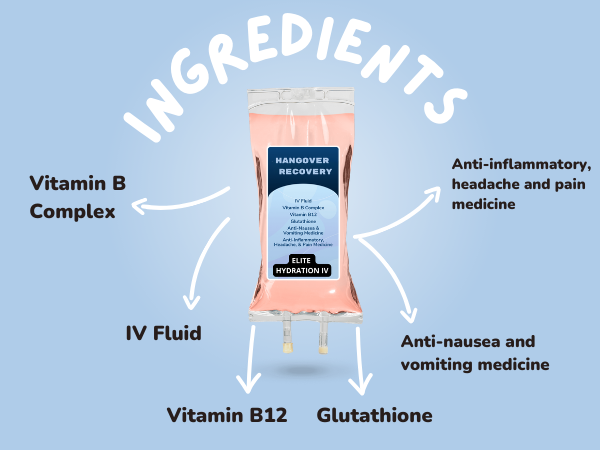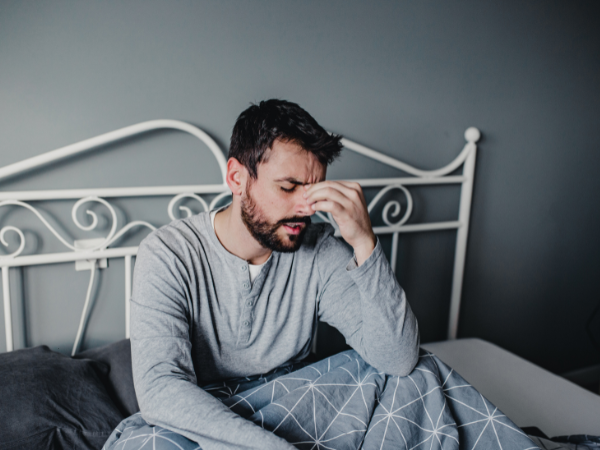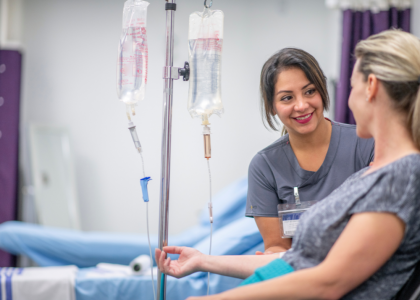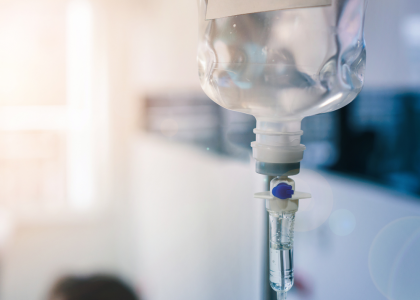Hangover supportive therapy can alleviate headaches, nausea, and fatigue. It also helps rehydrate the body and restore essential nutrients.
Hangover supportive therapy offers a holistic approach to managing the unpleasant symptoms of a hangover. This therapy typically includes a combination of hydration, vitamins, and anti-nausea medication to help you recover faster. By targeting the root causes of hangovers, such as dehydration and nutrient depletion, this therapy can significantly reduce discomfort.
As a result, you can return to your daily activities more quickly and with better overall well-being. Many people find that this form of therapy not only eases their immediate symptoms but also improves their energy levels and mental clarity. Consider hangover supportive therapy for a quicker, more comfortable recovery.
Understanding Hangover Supportive Therapy
Hangovers can ruin your day and make you feel awful. Luckily, Hangover Supportive Therapy can help ease those nasty symptoms. This therapy focuses on making you feel better fast. Understanding how it works can help you get the most out of it.
What Is Hangover Supportive Therapy?
Hangover Supportive Therapy is a treatment designed to relieve hangover symptoms. A hangover can leave you feeling tired, nauseous, and with a pounding headache. This therapy aims to ease these symptoms quickly.
Here are some key features of Hangover Supportive Therapy:
- Rehydration: Replenishes lost fluids to combat dehydration.
- Electrolyte balance: Restores essential minerals like sodium and potassium.
- Vitamin boost: Provides vitamins, especially B and C, to help your body recover.
- Medication: Uses painkillers and anti-nausea meds to alleviate discomfort.
Hangover Supportive Therapy can be administered in various ways, including oral supplements and IV drips. The latter is often more effective because it delivers nutrients directly into your bloodstream. IV therapy can be done at home or in a clinic, depending on your preference.
How Does Hangover Supportive Therapy Work?
The therapy works by targeting the root causes of hangover symptoms. Dehydration is one of the main culprits behind a hangover. By rehydrating your body, you can alleviate symptoms like headache and fatigue.
Electrolyte imbalance is another key issue. Drinking alcohol causes your body to lose essential electrolytes. Replenishing these can help restore your body’s natural balance and make you feel better.
Vitamins and nutrients are also crucial. Alcohol depletes your body of vital vitamins, especially B and C. Hangover Supportive Therapy provides these vitamins to help your body recover faster. IV drips are particularly effective because they deliver these nutrients directly into your bloodstream.
Medication is often used to tackle specific symptoms. Painkillers can help with headaches, while anti-nausea meds can ease stomach discomfort. By targeting these symptoms directly, you can feel better much quicker.

The Best Solution Hangover IV Therapy
The Hangover IV Drip Package quickly rehydrates and restores essential vitamins, effectively relieving hangover symptoms.
Benefits Of Hangover Supportive Therapy
Hangover supportive therapy is a game-changer for anyone who has experienced the unpleasant aftermath of a night of indulgence. This therapy offers a comprehensive solution to alleviate hangover symptoms and promotes overall well-being. Let’s dive into the six key benefits of hangover supportive therapy and how it can help you feel your best even after a night of celebration.
Alleviation Of Hangover Symptoms
One of the primary benefits of hangover supportive therapy is the quick alleviation of common hangover symptoms. This therapy targets headaches, nausea, dizziness, and fatigue, making it an effective solution. Here’s how it works:
- Headache Relief: The therapy includes pain relievers that target the specific types of headaches caused by hangovers.
- Nausea Reduction: Anti-nausea medications are administered to settle your stomach.
- Fatigue Combat: Energy-boosting elements help reduce fatigue and restore your energy levels.
These targeted treatments help you recover faster and get back to your daily routine without the lingering effects of a hangover.
Rehydration And Nutrient Restoration
Dehydration is a major cause of hangover symptoms. Hangover supportive therapy focuses on rehydrating your body and restoring lost nutrients. This involves:
- IV Fluids: Hydration therapy through IV fluids ensures rapid rehydration.
- Electrolyte Balance: Essential electrolytes like sodium, potassium, and magnesium are replenished.
- Vitamin Boost: Vitamins B and C are included to support overall health.
These elements work together to restore your body’s balance, making you feel refreshed and revitalized.
Detoxification And Liver Support
Detoxification is crucial after consuming alcohol, as your liver works overtime to process the toxins. Hangover supportive therapy aids in detoxification and supports liver function with the following:
- Antioxidants: These help neutralize harmful toxins in your body.
- Liver Enzymes: Supplements that promote liver health and function.
- Herbal Extracts: Ingredients like milk thistle and turmeric that support liver detoxification.
By enhancing your liver’s ability to detoxify, this therapy helps you recover more efficiently.
Reduction Of Inflammation
Alcohol consumption can lead to inflammation in your body, causing discomfort and prolonging hangover symptoms. Hangover supportive therapy includes:
- Anti-inflammatory Medications: Reduce inflammation and alleviate pain.
- Omega-3 Fatty Acids: Known for their anti-inflammatory properties.
- Herbal Anti-inflammatories: Such as ginger and turmeric extracts.
These components help to reduce inflammation, promoting faster recovery and reducing discomfort.
Boosting Energy Levels
Fatigue and low energy are common hangover symptoms. Hangover supportive therapy includes elements that boost your energy levels:
- Energy-Boosting Vitamins: B vitamins are essential for energy production.
- Amino Acids: Support muscle recovery and energy levels.
- Hydration: Proper hydration is crucial for maintaining energy.
By addressing these factors, the therapy ensures you feel more energized and ready to tackle your day.
Improved Mental Clarity
Brain fog and difficulty concentrating are common aftereffects of a hangover. Hangover supportive therapy helps to improve mental clarity with:
- Hydration: Proper hydration improves brain function.
- Essential Nutrients: Vitamins and minerals that support cognitive function.
- Antioxidants: Protect brain cells from oxidative stress.
This therapy ensures your mind is sharp and clear, helping you to focus and be productive.

Types Of Hangover Supportive Therapy
Hangover supportive therapy can help alleviate the unpleasant symptoms of a hangover. There are various types of therapies available to provide relief. These therapies focus on replenishing lost nutrients, rehydrating the body, and reducing discomfort. Understanding the different types can help you choose the best option for your needs.
Intravenous (iv) Therapy
Intravenous (IV) therapy is one of the fastest and most effective ways to alleviate hangover symptoms. This method delivers fluids, electrolytes, vitamins, and medications directly into the bloodstream. Here are some key benefits of IV therapy for hangovers:
- Rapid Rehydration: IV fluids quickly rehydrate your body, which is crucial for recovery.
- Immediate Relief: Medications for nausea and pain can be administered directly, providing swift relief.
- Nutrient Boost: Essential vitamins and minerals can be added to the IV solution to replenish your body.
IV therapy is often administered in clinics or by mobile IV services that come to your location. The table below lists common ingredients in an IV hangover therapy solution:
| Ingredient | Benefit |
|---|---|
| Saline Solution | Rehydrates the body |
| Vitamin B Complex | Boosts energy levels |
| Magnesium | Relieves headaches |
| Anti-nausea Medication | Reduces nausea |
| Pain Reliever | Alleviates body aches |
Oral Supplements And Medications
Oral supplements and medications are another popular option for hangover relief. These can be easily purchased over-the-counter and taken at home. They help to replace lost nutrients and alleviate symptoms. Common types include:
- Electrolyte Tablets: These tablets dissolve in water and help rehydrate the body.
- Vitamin B and C Supplements: These vitamins help boost energy and support the immune system.
- Pain Relievers: Medications like ibuprofen or aspirin can help reduce headaches and muscle pain.
- Anti-nausea Tablets: These help to settle the stomach and reduce feelings of nausea.
Oral supplements are convenient and can be taken as needed. Here are some commonly used supplements:
| Supplement | Purpose |
|---|---|
| Electrolyte Tablets | Rehydration |
| Vitamin B Complex | Energy Boost |
| Vitamin C | Immune Support |
| Ibuprofen | Pain Relief |
| Anti-nausea Tablets | Nausea Reduction |
Nutrient-rich Fluids And Beverages
Nutrient-rich fluids and beverages are essential for rehydrating the body and replenishing lost nutrients. Drinking these can help alleviate hangover symptoms and promote recovery. Some effective options include:
- Coconut Water: High in electrolytes, it helps rehydrate and balance the body.
- Sports Drinks: These drinks contain electrolytes and sugars to restore energy levels.
- Herbal Teas: Ginger or peppermint tea can soothe the stomach and reduce nausea.
- Fruit Juices: Juices rich in vitamin C, like orange juice, can boost the immune system.
These beverages are easily accessible and can be consumed throughout the day. Here is a list of nutrient-rich fluids and their benefits:
| Beverage | Benefit |
|---|---|
| Coconut Water | Rehydrates and balances electrolytes |
| Sports Drinks | Restores energy levels |
| Ginger Tea | Reduces nausea |
| Orange Juice | Boosts the immune system |
| Peppermint Tea | Soothes the stomach |
Choosing The Right Hangover Supportive Therapy
Hangovers can be debilitating, affecting your entire day. Hangover supportive therapy provides relief and helps you recover faster. Choosing the right hangover supportive therapy is crucial for effective recovery. This involves considering individual symptoms, consulting healthcare professionals, and reviewing personal health and medical history.
Consideration Of Individual Symptoms
Hangovers manifest differently in each person. Understanding your specific symptoms can guide you to the right therapy. Common symptoms include:
- Headaches
- Nausea
- Fatigue
- Dehydration
Tailoring your therapy to these symptoms can make a significant difference. For instance, if you experience severe headaches, therapies focusing on pain relief might be most beneficial. On the other hand, if dehydration is your main issue, rehydration solutions like IV fluids could be more effective.
Here’s a quick guide to match symptoms with potential therapies:
| Symptom | Recommended Therapy |
|---|---|
| Headache | Pain relievers, hydration |
| Nausea | Anti-nausea medications, ginger tea |
| Fatigue | Rest, electrolyte replenishment |
| Dehydration | IV fluids, water, sports drinks |
Consultation With Healthcare Professionals
Healthcare professionals can provide valuable insights into managing hangovers effectively. They can recommend therapies based on your symptoms and health status. Consulting a doctor ensures you choose a safe and effective treatment.
Benefits of consulting a healthcare professional:
- Personalized treatment plans
- Accurate diagnosis of symptoms
- Access to prescription medications if needed
- Guidance on safe dosage and usage
Healthcare professionals can also help you avoid potential side effects and interactions with other medications you might be taking. This ensures a safer recovery process.
Consider scheduling a quick consultation with your doctor, especially if you experience frequent or severe hangovers. Professional advice can make a significant difference in how quickly and safely you recover.
Personal Health And Medical History
Your personal health and medical history play a crucial role in choosing the right hangover supportive therapy. Certain medical conditions can influence the effectiveness and safety of specific treatments.
Factors to consider:
- Existing medical conditions (e.g., liver disease, diabetes)
- Current medications
- Allergies to medications or ingredients
- Previous reactions to hangover treatments
For example, if you have a history of liver issues, you should avoid medications that are metabolized by the liver. Instead, opt for alternative therapies like hydration and rest.
Creating a detailed medical history can help you and your healthcare provider make informed decisions. This ensures the chosen therapy is both safe and effective. Always disclose your full medical history to your doctor, including any over-the-counter medications or supplements you are taking.
Managing hangovers becomes easier and safer when your treatment plan aligns with your health needs. Keeping your medical history in mind helps you avoid complications and recover faster.
Effectiveness And Safety Of Hangover Supportive Therapy
Hangovers can ruin an entire day. Hangover supportive therapy offers relief and helps you bounce back faster. The effectiveness and safety of these therapies are crucial. Knowing how well they work and their risks can help you make an informed choice.
Scientific Evidence And Studies
Many studies show that hangover supportive therapies can be effective. Researchers have investigated various treatments, including IV fluids, vitamins, and medications. Some key findings include:
- IV Fluids: IV therapy can rehydrate the body quickly. Rehydration helps reduce headaches and dizziness. Studies show that IV fluids are more effective than oral rehydration.
- Vitamins: B vitamins and Vitamin C are often used in hangover therapies. These vitamins can boost energy and reduce fatigue. Research supports their role in improving hangover symptoms.
- Medications: Certain medications can alleviate specific hangover symptoms. For example, anti-nausea drugs can help with stomach discomfort. Pain relievers can reduce headaches.
Clinical trials have tested these treatments. Results show that combined therapies offer the best results. For example, using IV fluids with vitamins can provide quicker relief. Here is a table summarizing the findings:
| Therapy | Effectiveness |
|---|---|
| IV Fluids | High |
| Vitamins | Moderate |
| Medications | Variable |
Potential Risks And Side Effects
While hangover supportive therapy can be effective, it is not without risks. Understanding these risks helps you make a safer choice. Some potential side effects include:
- IV Therapy Risks: Infections can occur at the injection site. There is also a risk of vein inflammation. Some people may experience allergic reactions to the fluids.
- Vitamin Overdose: Excessive intake of vitamins can cause harm. Too much Vitamin C can lead to stomach issues. High doses of B vitamins may cause nerve damage.
- Medication Side Effects: Pain relievers can cause stomach ulcers. Anti-nausea drugs may lead to drowsiness or dizziness. Always consult a doctor before taking any medication.
Monitoring your body’s response is crucial. Start with small doses and observe any side effects. If symptoms persist, seek medical advice. Here is a quick overview of potential risks:
| Therapy | Potential Risks |
|---|---|
| IV Fluids | Infection, Allergic Reactions |
| Vitamins | Overdose, Stomach Issues |
| Medications | Ulcers, Drowsiness |
Understanding both the benefits and risks of hangover supportive therapy ensures better health outcomes. Make informed choices for a quicker recovery.
Integration With Lifestyle And Wellness Practices
Integrating hangover supportive therapy with your lifestyle and wellness practices can significantly enhance your overall well-being. By incorporating simple yet effective strategies, you can mitigate hangover symptoms and promote a healthier lifestyle. Here are three essential areas to focus on:
Healthy Hydration Habits
Proper hydration is essential for hangover recovery and overall health. When you drink alcohol, your body loses fluids, leading to dehydration. To combat this, adopt healthy hydration habits:
- Drink Water Regularly: Ensure you drink water throughout the day. Aim for at least 8 glasses of water daily.
- Electrolyte Solutions: Use electrolyte solutions or sports drinks to replenish lost minerals and salts.
- Limit Caffeinated Beverages: Coffee and tea can dehydrate you further. Opt for herbal teas or water instead.
Here’s a quick hydration guide:
| Time of Day | Hydration Action |
|---|---|
| Morning | Drink a glass of water upon waking up. |
| Afternoon | Have a bottle of water with lunch. |
| Evening | Drink water after physical activities. |
Balanced Nutrition And Diet
A balanced diet is vital for reducing hangover symptoms and maintaining good health. Eating the right foods can stabilize your blood sugar and provide essential nutrients:
- Consume Whole Foods: Include fruits, vegetables, whole grains, and lean proteins in your diet.
- Avoid Processed Foods: Processed foods can worsen hangover symptoms. Stick to natural, unprocessed options.
- Stay Hydrated with Food: Foods like cucumbers, watermelon, and oranges have high water content and help with hydration.
Here’s a sample balanced meal plan:
| Meal | Food |
|---|---|
| Breakfast | Oatmeal with berries and nuts |
| Lunch | Grilled chicken salad with mixed greens |
| Dinner | Salmon with steamed vegetables |
| Snacks | Fruit slices, yogurt, or nuts |
Moderation In Alcohol Consumption
Practicing moderation in alcohol consumption is key to preventing hangovers and promoting a healthier lifestyle. Here are some tips:
- Set Limits: Decide on a limit before you start drinking and stick to it.
- Drink Slowly: Pace yourself and sip your drink slowly to avoid overconsumption.
- Alternate with Water: For every alcoholic drink, have a glass of water in between.
Here are some strategies to moderate alcohol intake:
- Choose Lower Alcohol Content Drinks: Opt for beverages with lower alcohol by volume (ABV).
- Avoid Binge Drinking: Spread your drinks over a longer period rather than consuming multiple drinks in a short time.
- Eat Before and While Drinking: Eating can slow down alcohol absorption and reduce its impact.
By integrating these practices into your routine, you can enjoy social events while minimizing hangover risks and maintaining a healthier lifestyle.
Frequently Asked Questions
What Is The Number One Cure For A Hangover?
Drinking plenty of water and getting rest are crucial. Hydration helps detoxify your body and eases hangover symptoms.
Why Is Coke So Good For A Hangover?
Coke helps with a hangover by replenishing sugar levels and providing caffeine. It also helps settle the stomach.
How Can I Cure My Hangover Asap?
Drink water, eat a nutritious meal, and rest. Hydrate with electrolyte drinks. Take pain relievers for headaches. Avoid alcohol.
Does Myrkl Really Work?
Myrkl is designed to reduce the effects of alcohol. Many users report positive results, but individual experiences may vary. Always consult with a healthcare professional before use.
Conclusion
Embracing hangover supportive therapy can significantly improve your post-party recovery. Enjoy increased hydration, reduced symptoms, and better overall health. Make smarter choices and feel the benefits of these therapies. Prioritize your well-being and experience a smoother recovery after a night out.
Enjoy life without the dreaded hangover.






